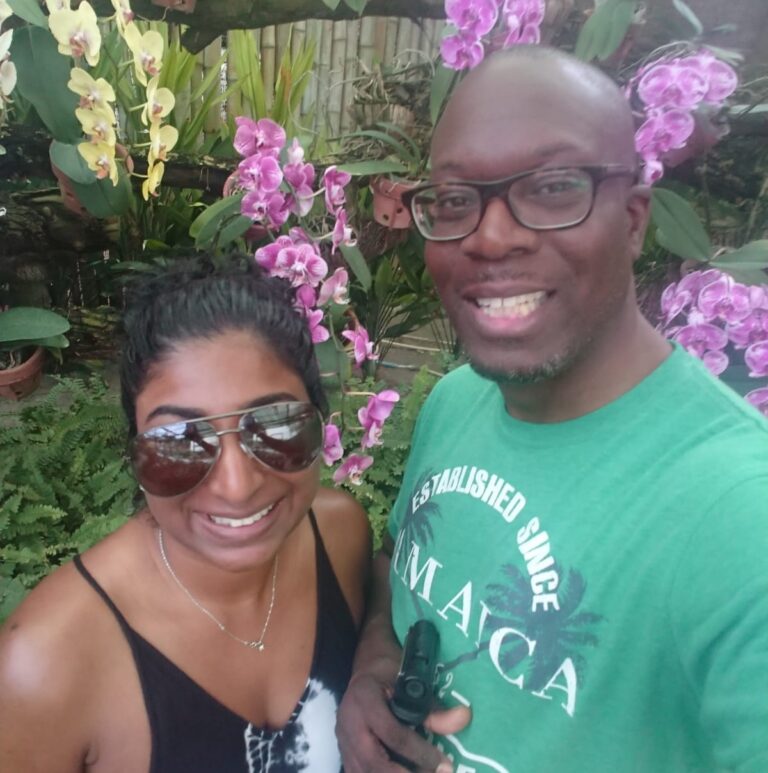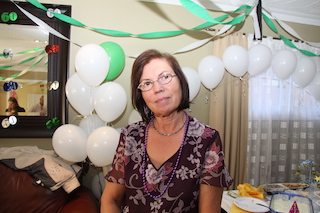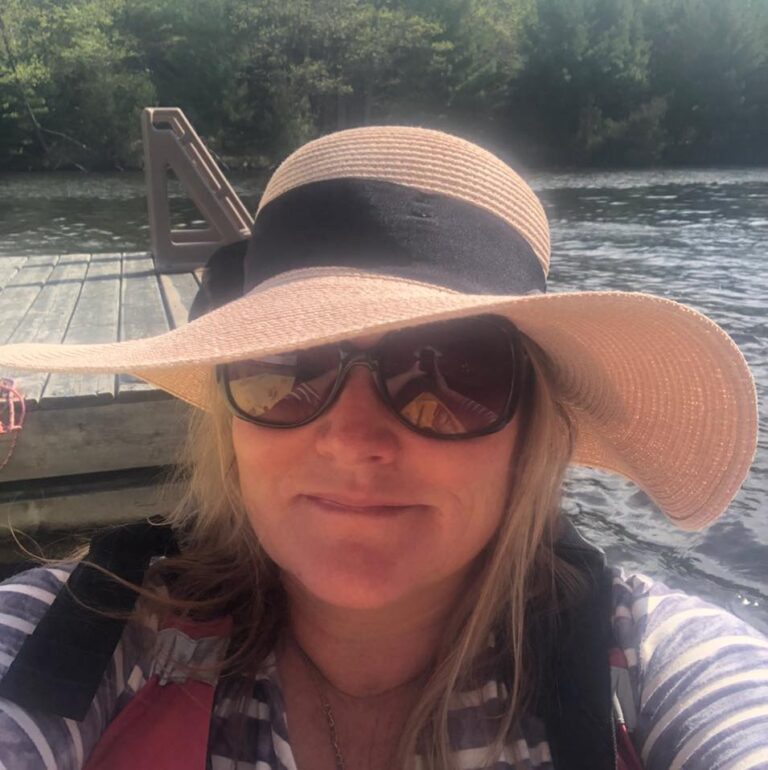BUYERS
When one door closes another door opens; but we so often look so long and so regretfully upon the closed door, that we do not see the ones which open for us.
Alexander Graham Bell
THE BUYING PROCESS

It’s all about helping you find the right home in the right neighbourhood at the best possible price. Buying a home can be a bit overwhelming. There’s so much to think about and do, so, it’s important that you have someone you can trust to make the process as smooth as possible and offer expert advice.
Since 1913, Royal LePage has been helping Canadians find their dream homes and guiding them every step of the way – from determining what you can afford and showing you homes that match your wants and needs to presenting an offer and closing the sale. It’s all about helping you find the right home in the right neighbourhood at the best possible price.
Spend a little time to make a list of must-haves and nice-to-haves. Be realistic, but be clear about the features you can’t live without, ...
Maroof Mohammed, Broker
B.Sc.(Hons), MRICS, CCIM, AACI, P.App, CEA

So let’s get started, you’ve made the decision, you’re ready to buy, now what?
STEP 1 | Needs and Wants
Define your needs and wants – Spend a little time to make a list of must-haves and nice-to-haves. Be realistic, but be clear about the features you can’t live without, like the number of bedrooms and bathrooms your family needs, proximity to schools and work, or storage needs. Do you want a home office? A garage? How about a big backyard? Hardwood floors? Eat-in kitchen? Consider your lifestyle and your stage of life. If you’re planning kids in a year or two, the studio loft might not be your best bet. Then list some nice-to-haves: maybe a pool or deck, a finished basement or mud room. This will help you further down the road when you start looking at homes.
Brush-up on types of home ownership – Make sure you know the difference between freehold (it’s all yours), condo (you take care of the inside and pay fees to an association to look after the common areas and maintenance) and co-op (similar to condos but instead of “owning” your unit, you buy shares in the whole building and pay maintenance and repair fees).
Understand market conditions – Supply and demand can change from neighbourhood to neighbourhood, region to region. So, getting to know the market can help you get more bang for your buck, and so can your real estate agent. Buying a home is personal and emotional so the relationship with your real estate agent has to be built on expertise, trust and mutual respect. After all, they will be acting as your eyes, ears and voice throughout the process. They have a fiduciary duty to act in your best interests, to be completely transparent and accountable to you. Here’s some of what Maroof can will help with:
- Educate you about the current market conditions
- Discuss and analyze your wants and needs against your budget
- Guide you to homes that fit your criteria
- Coordinate the work of other professionals you’ll need during the process
- Negotiate with the seller on your behalf
- Make sure all the required paperwork is fully completed, accurate and that deadlines are met
- Work with you to resolve any challenges that may arise and while your agent will likely be a great source of advice on financing, it is ultimately your responsibility to understand and secure it.
Did we mention Maroof is a FSRA licensed Mortgage Broker with all the right contacts to get you the best financing possible?
So, let’s move on to financing.
STEP 2 | Understanding Financing
Like many things in life, planning ahead is the key to success. So, you should know the price range you can afford before you start shopping. Here are a few things to keep in mind:
Down payment – Not to be confused with the deposit, this is usually the percentage of the total cost of a home that you’ll need to pay. The more money you put down, the more money you’ll save on monthly payments and, in the long run, interest paid.
Knowing what you can afford – how much house you can afford comes down to 3 factors: your monthly mortgage payment, your down payment and the amortization period or length of time it will take to pay off the loan.
Getting pre-approved – this will really help you figure out what you can spend on a home because you’ll know before you start shopping and you’ll be protected against rising interest rates as well.
Fixed or Variable? – Once you’re approved, you’ll need to decide what type of mortgage works best for your needs. Will you go with a fixed or variable interest rate? Will your mortgage be closed or open? What will your amortization period be? Will you make payments monthly, biweekly or weekly? Your mortgage broker or lender can help you find a mortgage that suits your needs – and saves you the most money in the long term. If you’re uncertain and need a second opinion then don’t hesitate to discuss your query with Maroof to help clear things up. That’s what he’s there for and you don’t want to leave it until it’s too late.
Ask Maroof to explain the benefits of setting you up to receive real time Daily Updates of new listings to give you a competitive edge ensuring you don’t miss out on anything. Let’s get going!
Maroof Mohammed, Broker
B.Sc.(Hons), MRICS, CCIM, AACI, P.App, CEA

STEP 3 | Finding Your Home
So now it’s time to get out there and find your dream home. You’ve got somewhat of an idea of what you are looking for based on STEP 1 so lets get this show on the road. Most people start off by having a neighbourhood in mind but a great agent may suggest options that you may not have thought of. Here are some considerations as you set out to house hunt:
Choosing the right neighbourhood – They say that location, location, AND location is everything. Living in an area you like is as important as buying a home you love. Do you want a busy urban lifestyle, a house in the ‘burbs’, or a quiet place in the country? Do you want to walk to work or are you okay with a longer commute? Do you need to be close to schools, public transit, highways? These can be huge factors when choosing an area to live. And let’s not forget proximity to other amenities like parks, grocery stores, doctors and recreational centres. Drive around and check out the appearance of other homes in the area. Are they well taken care of? Later on, Maroof will be able to inform you of property values in the area and how they’ve changed over the years.
House hunting – the hunt can be a lot of work but it can also be a lot of fun. So when you visit homes, go with a partner – spouse, parent, friend – because two sets of eyes are better than one. Don’t be shy about asking some tough questions regarding the home. Take some pictures or video on your smartphone (Compliance Issue – ask Maroof first though) so you can reference them later, and remember that checklist you made, it will come in handy now.
View open houses with open eyes – curb appeal is one thing but try not to focus on the bells and whistles. Keep a lookout for things like doors and windows (are they new/ old?), water leaks, squeaky floors, soggy areas around the yard that indicate poor drainage and could lead to a wet basement, missing shingles, lighting, etc. You’ll be getting a home inspection later, but it doesn’t hurt to start with your own observations.
Don’t miss out – Ever called a realtor only to learn that the home listed on MLS.ca or Realtor.ca is already sold. You can avoid disappointment by accessing real – time information. It takes time for the Toronto Regional Real Estate Board servers to update or share listing information with public domains. Ask Maroof to explain the benefits of setting you up to receive real time Daily Updates of new listings to give you a competitive edge ensuring you don’t miss out on anything. Let’s get going!
And when you finally find the home you can see yourself living in, it’s time for the next step…
Real estate cannot be lost or stolen, nor can it be carried away. Purchased with common sense, paid for in full, and managed with reasonable care, it is about the safest investment in the world.
Franklin D. Roosevelt
STEP 4 | Making an Offer
You’ve fallen in love. But it’s important that you don’t let your emotions get the better of you when making an offer. Remember, real estate is an investment. Fortunately, your real estate agent is there to help you put together an Offer to Purchase and discuss all the details. Here are a few things you should know:
Not all offers are the same – the main factors on most offers will include price, deposit, terms (which includes financing details), conditions, specific items that are included or not with the home and the closing date. From there, you can decide to make a “firm” offer which means that you’re willing to buy the home exactly as it is. Or, you could make the offer “conditional” on things like a home inspection, approval of financing or the sale of your existing home
Negotiating may come into play – the seller will either accept your offer, reject it or make a counter offer based on things like price, closing date or other conditions. While receiving a counter offer may be unsettling, know that your real estate agent has plenty of experience to help you. Some good tips for negotiating are: making sure what you’re asking for is fair and equitable; be polite and collaborative; hold fast to your “needs” and be flexible on your “wants”; and know when to walk away no matter how hard that may be
After agreeing on terms and signing the offer, it’s time for the next step…
The most difficult thing in any negotiation, almost, is making sure that you strip it of the emotion and deal with the facts.
Howard Baker
STEP 5 | Inspections and Professional Advice
Your home is probably the most expensive of your purchases. For your transaction to go smoothly you will need to perform your homework to make sure the investment you’re about to make is sound and that you have prepared adequately in getting to the finish line on closing day. In the simplest of purchases you will require the services of a reputable team of pros such as lender or mortgage broker, lawyer, home inspector, and an insurance broker. Maroof works closely with all of these professionals and others and will be happy to recommend people you can depend on. Here are a couple of key people you should definitely be talking to:
A home inspector – an absolute must in saving you from some unpleasant surprises later on. A home inspector will check your property for any structural damage; perform a thorough examination of the heating and cooling system, plumbing and electrical systems, the roof, attic, walls, ceilings, floors, windows, doors, foundation, basement and more; then prepare a complete written report detailing all their findings.
A legal professional – when it comes to complex legal documents, it takes a lawyer experienced in Canadian real estate law to help make sure that you and your investment are protected. A real estate lawyer will review the agreement of purchase and sale, do a property title search, check that your home complies with current building and zoning codes, ensure utilities and property taxes are paid up, review the mortgage agreement, and get all the paperwork ready for closing.
You’re almost in the home stretch now. Just a couple more steps…
STEP 6 | Closing the Sale
Stipulated as the Completion Date in the Agreeent of Purchase and Sale, the closing day is the day you officially take ownership of your new home. It’s an exciting time for sure. But there are a couple of details you need to keep in mind before you get handed the keys:
Closing costs – these fees need to be paid by or on the closing day and include mortgage application fees, inspections, legal fees, insurance, registration and more.
All these costs might make your head spin. But you can take solace in the fact that your real estate agent will be a great help in managing all of this and get you to your last step…
STEP 7 | The Big Move
The day has arrived. And there will be as much excitement as there will be sore backs. But you can take the pain out of moving day by planning ahead. Here are some tips for a smooth move:
Make a moving checklist that details a plan for things that need to be done weeks before you move all the way up to moving day itself. Click on this link to download a checklist starting 6 weeks out to get you started. Remember, preparation is key. Use the checklist to take away any guesswork.
Plan for packing by clearly labeling boxes with the rooms they are to go to. You might even want to provide a small floorplan for the movers so they know exactly where to take them.
Make sure you get competitive quotes from reliable moving companies. Or, to save money, find out how much it would cost to hire a moving van yourself (and bribe your friends to help you).
While you’re at it, make sure to have the gas, electricity, cable and phone hooked up at your new home. The sellers lawyer will likely inform the utility companies of the transfer in ownership, Maroof says that it might be an idea to inform the relevant utilities yourself AND take a photographs of meter readings upon ownership. This way you’ll be covered should any future discrepancies arise at the time of billing.
Inform your key contacts – work, Canada Post, doctors, friends, pharmacy, etc… – of your change of address
If you have children, make sure you talk to them and explain why you’re moving and reassure them that the friends they’ve made can continue to be their friends. Ask for their opinion too on things like what colour to paint their rooms. Try and make it exciting for them.
On moving day, plan an easy meal like picking up some take-out. Moving is stressful enough without having to cook
Congratulations, you’ve made it to the finish line, you’re all moved in, so welcome home!
“It’s time for your new life to begin in the home of your dreams. Thank you for allowing me to partake in your journey, and remember I’m only always just a call or click away so don’t be a stranger. "
Maroof Mohammed, Broker
B.Sc.(Hons), MRICS, CCIM, AACI, P.App, CEA









